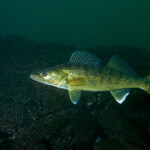Seafood task force submits recommendations to US Trade Representative

A task force looking at bolstering the competitiveness of the U.S. seafood industry submitted its recommendations to do just that to the U.S. Trade Representatives on Wednesday, 5 August, NOAA announced in a release on Thursday, 6 August.
A list or summary was not released. Kate Goggin, a NOAA Fisheries spokesperson, told SeafoodSource the recommendations are “an internal, deliberative document.”
“The final plan will be made public when it is due on 3 November,” Goggin added. “The recommendations referenced in today’s announcement inform the final plan.”
The Interagency Seafood Trade Task Force received comments from 50 industry stakeholders from Friday, 10 July, to Saturday, 1 August, which the group used to create the recommendations.
“The recommendations are intended to support fair market access for U.S. seafood products through trade policy and negotiations,” NOAA said in a statement. “The task force drew on their extensive work on this issue and took into account all of the submitted public comments.”
The task force was established on Thursday, 7 May, by U.S. President Donald Trump to develop a robust strategy that would help improve access to foreign markets for domestic products. Officials from the Commerce Department and the Trade Representatives co-chaired the panel, with representatives from the State Department, Department of Interior, Department of Agriculture, Department of Homeland Security and Office of Management and Budget among the other 12 members on the task force.
Trump’s order gave the group 90 days to come forward with recommendations.
Among the comments the group received was a plea from the Louisiana Shrimp Association to help its members compete against the flood of “cheap imports.” When shrimpers went into the Gulf of Mexico in May, they were earning just USD 0.35 (EUR 0.29) per pound, meaning an 18-hour day could produce just USD 350 (EUR 295) worth of shrimp, the association’s president, Acy Cooper Jr., said in the letter.
The association said in the past, fishermen had been helped by anti-dumping duties, but those funds went away when the Byrd Act expired in 2005.
“Our fishermen need to be subsidized or a cap put on the volume of seafood imports entering here,” Cooper wrote.
In its letter, the At-Sea Processors Association encouraged the task force to reconsider U.S. trade policies when it comes to seafood. Most notably, it said that when China imposed tariffs of wild Alaska pollock and other species and then subsequently raised them twice, it led to a collapse of margin and market share in China, the association’s fastest-growing seafood market. Yet, the U.S. has not responded with in-kind tariffs on pollock sent via China.
The group’s executive director, Stephanie Madsen, said It shows that domestic seafood producers aren’t receiving the attention they need from Washington.
“Fixing this problem will require a sustained commitment to far-reaching reform. At the core of any such reforms must be an explicit and deliberate reorientation of trade policy to support U.S. seafood producers,” she wrote.
Photo courtesy of Mark Van Scyoc/Shutterstock






Share